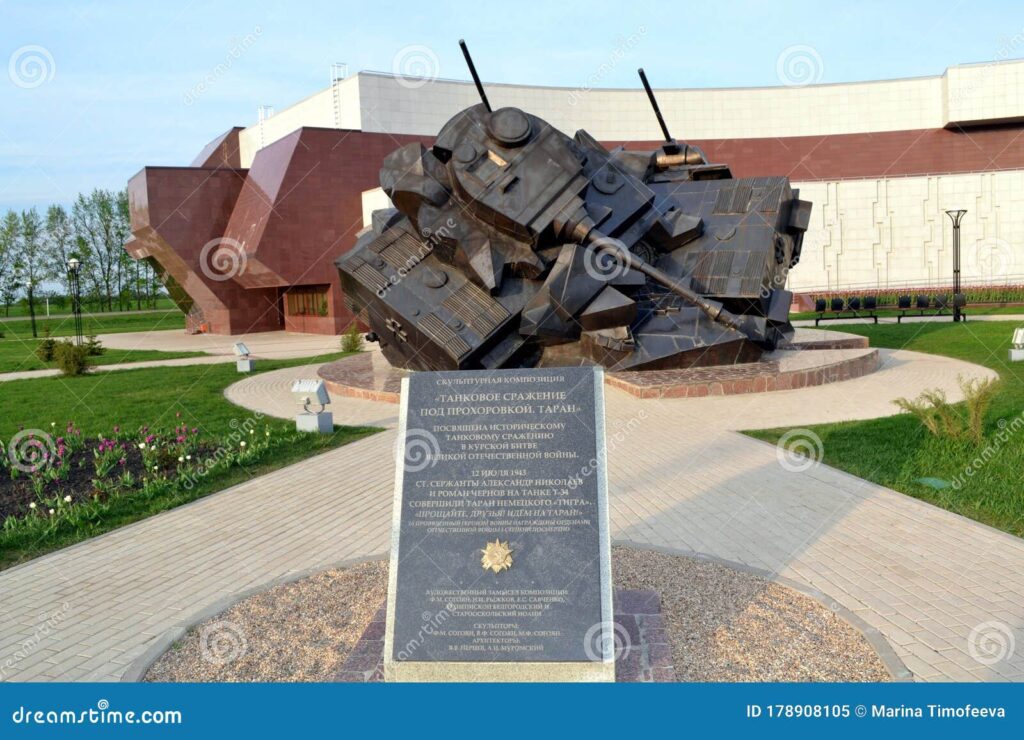The Battle of Kursk, which occurred during World War II from July 5 to August 23, 1943, was a monumental clash between the German and Soviet forces. This battle, considered the largest armored clash in history, marked a turning point on the Eastern Front. The German army, seeking to regain momentum after defeats, launched Operation Citadel, targeting the strategically important city of Kursk. The Soviet forces, led by Marshal Georgy Zhukov, were well-prepared and created a heavily fortified defensive line known as the Kursk Salient. Despite the German technological advantage, the Soviets’ numerical superiority and superior air support led to a decisive victory. The Battle of Kursk inflicted significant losses on the German war machine and demonstrated the resilience of the Soviet people.
The Battle of Kursk: The Largest Armored Clash in History
Introduction
The Battle of Kursk, which took place from July 5 to August 23, 1943, during World War II, was one of the largest and most significant battles in history. It marked a turning point in the Eastern Front and is remembered for its massive armored clash between the German and Soviet forces.
Background
By 1943, the German army had suffered defeats on the Eastern Front and was looking to regain momentum. Kursk, a strategically important city in present-day Russia, was chosen as the target for their summer offensive, codenamed Operation Citadel. The Germans planned to surround and destroy a large Soviet salient in the Kursk region.
German Preparations
The German forces under Field Marshal Erich von Manstein and Army Group South, commanded by General Walter Model, assembled a formidable force for the offensive. They concentrated over 2,900 tanks and assault guns, along with more than 2,000 aircraft. The Germans believed that a decisive victory at Kursk would cripple the Soviet Union.
Soviet Defense Preparations
The Soviets, led by Marshal Georgy Zhukov, were aware of the German plans through intelligence and knew the importance of the Kursk region. They also started preparing defensive measures, creating a heavily fortified defensive line known as the Kursk Salient. This line consisted of a series of interconnected defensive belts with minefields, trenches, and antitank obstacles.
The Clash
On July 5, the Germans launched their offensive, with massive armored and infantry assaults. However, the Soviets were well-prepared, and their defensive strategy proved effective. The German tanks faced a hailstorm of artillery fire and were regularly ambushed by concealed Soviet tanks in a tactic known as “hugging the hedgehog.”
With their Tiger and Panther tanks, the Germans enjoyed a technological advantage in terms of firepower and armor. However, the sheer number of Soviet tanks, particularly the T-34, which was well-suited for the terrain, nullified this advantage. The Soviets also had superior air support, which prevented the German Luftwaffe from dominating the skies.
Massive Casualties
The Battle of Kursk saw a staggering amount of casualties. The Germans suffered heavy losses in terms of tanks, aircraft, and soldiers. The Soviets also suffered significant losses, but their ability to replace equipment and manpower swiftly allowed them to endure the battle. By the end, the Germans were forced to retreat.
Legacy
The Battle of Kursk was a decisive Soviet victory and marked a turning point in the war. It demonstrated the capability of the Soviets to repel a major German offensive and inflicted heavy losses on the invading forces. Although the war continued for almost two more years, Kursk signaled the irreversible decline of the German war machine on the Eastern Front.
Conclusion
The Battle of Kursk remains one of the most significant battles in history, not only due to its scale but also because of its impact on the outcome of World War II. The battle showcased the resilience and determination of the Soviet people in defending their homeland and dealt a severe blow to the German war effort. Kursk will always be remembered as the largest armored clash in history.
